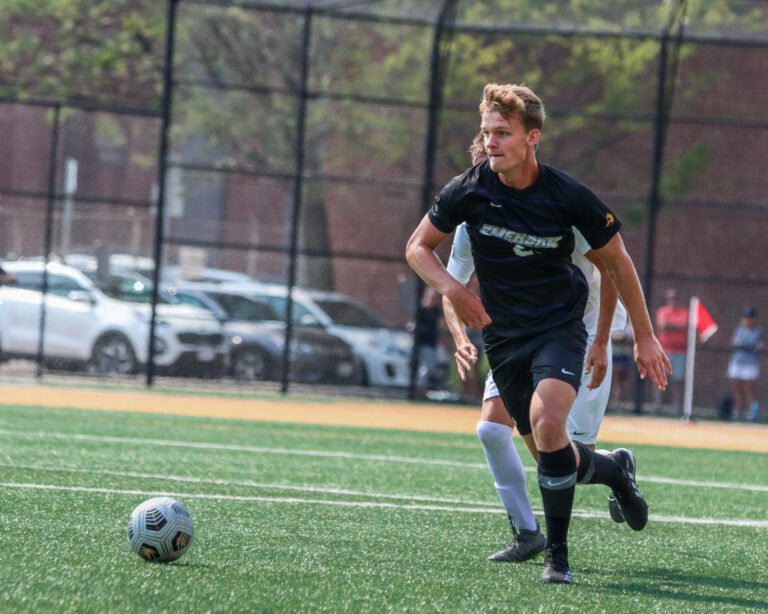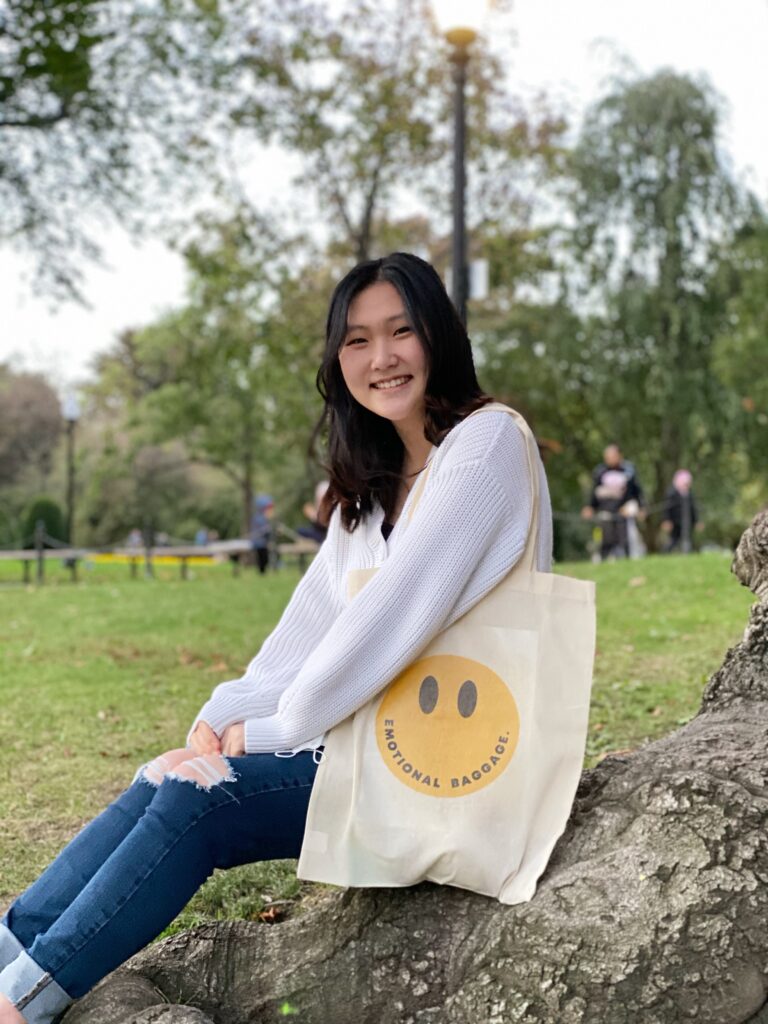Before Their Own Startup, E3 Student Teams Create Businesses
This is the first of several articles following two students through the Emerson Experience in Entrepreneurship program, better known as E3.
Port-a-Plant and Emotional Baggage. Those are the businesses created by two teams of students in the E3 program being captained by Bo Feekins ‘22 and Sunjin Chang ’23.
For the first semester of the program, teams undergo a $10 Challenge, in which E3 Director Lu Ann Reeb provides $10 of seed money to start businesses. Teams need to pay her back in five weeks, similar to startup investors. Each student can also kick in up to $5 to get the business off the ground.
“The idea behind this is to put them in a driver’s seat as soon as possible. There’s nothing like doing it,” said Reeb.

Team captains were selected by Reeb after the students provided elevator pitch videos explaining why they would be good assets to a team. Captains then selected their teammates from among the remaining students.
Each student takes on a role for each startup, such as project manager, finance, and marketing, with the captains overseeing their team. By that time, the foundations of entrepreneurship have been taught in class, on field trips, and from entrepreneurs talking to the class.
“During five weeks they may have to pivot. Sometimes it may fail and they have to come up with a new idea, just like in startups. Maybe the pricing is wrong. It makes them react like how entrepreneurs have to react,” Reeb said.
Each team is selling their product online and hosting campus pop-up stores. Teams will present to the class what happened throughout the $10 Challenge on November 1.
With Port-a-Plant, Feekins and his team is selling small potted plants to folks on campus.

“We’re making Emerson a better place, one plant at a time,” Feekins said. “As the leader of the organization, I’m helping out where I can. If someone needs help creating a graphic for social media I can help out. I picked individuals with different specialized talents and they can express their own creative vision on the business. I will help out individually when they ask for it. Mostly I want them to do what they do best.”
Emotional Baggage is a bag company with designs crafted by Chang’s team. The team purchased tote bags and are transferring the design onto the bags.
“We chose Emotional Baggage because we want to start honest, positive conversation in terms of mental health,” said Chang. “Coming out of the pandemic, people feel they have a lot of emotional baggage. Everyone has emotional baggage that we have to carry, but we’d rather carry it fashionably on our bags.”

When a customer orders an Emotional Baggage bag they are also asked how they’re doing – to provide a platform for self-reflection. There are three designs, including one that represents self-reflection — the writing on the bag is reversed so it can be read when facing a mirror.
This semester’s $10 Challenge is building up to next semester’s big assignment, in which each student creates their own startup business and pitches their ideas to real entrepreneurs in an expo competition.
Feekins and Chang both have ideas for their individual businesses.
A co-captain of Emerson’s men’s soccer team, Feekins’ current idea comes from his own personal experience as an international student athlete.
“It allows international student athletes to bridge the gap and connect with more colleges,” said Feekins. “As someone who grew up overseas, I feel so many people could play college sports but didn’t know about it or have the right connections.”
Chang would like to create a platform through which educators and creators can work together so teachers can include updated content in their classrooms.
“The media landscape is changing so quickly, and for educators who are more focused on educating students [than keeping on top of changes] I feel like the media environment can be too quick,” said Chang, a Journalism major. “Oftentimes, media content is being recycled and not up-to-date. Bill Nye the Science Guy is really overused. My sister is 7 years young and they’re still using the same content I had in classrooms.”

Both Feekins’ and Chang’s individual E3 businesses may end up coming to fruition. There are numerous examples of former E3 students taking their business into the real world, such as Evy Tea, started by Evy Chen ‘10 and Elizabeth Nash’s (’14) and Nisreen Galloway’s (‘14) Crème de Liqueur.
This is not Chang’s first foray into the startup world. She’s been hanging around startup companies through marketing internships at the Plug and Play Tech Center in Silicon Valley. Plug and Play is an early stage investor and accelerator.
“When I looked into Emerson, I thought about starting my own business. I thought I would get a full experience in marketing, finance, and business in the E3 program without learning about a specific type of business.”
Just in the first several weeks of the program, both Feekins and Chang said they’ve learned about many different aspects of entrepreneurship from experiences in and out of the classroom.
“Hopefully, I can have a business later down the road that started in the E3 program,” said Feekins.
Categories